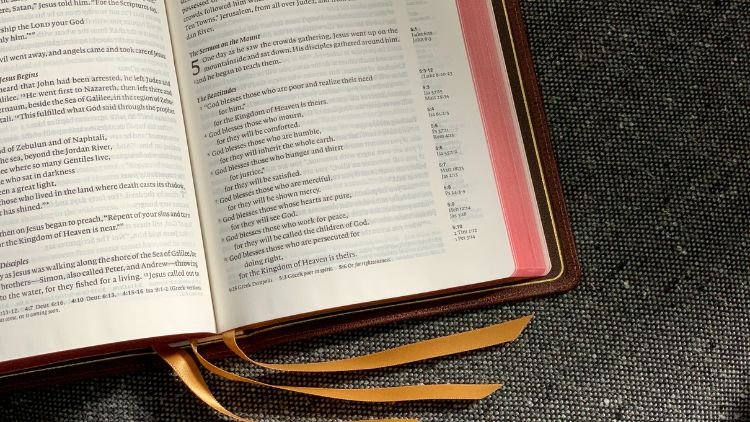The Book of Ruth is one of the shorter books of the Bible, but the story it tells is one of the most movingly ‘human’ in all of the Old Testament. However, how the story of Ruth should be interpreted is not an easy question to answer. Let’s delve deeper into the Biblical Book of Ruth to discover a world of outsiders, love, law, and mysterious customs involving shoes.
THE BOOK OF RUTH NUMBER 1
The Book of Ruth is one of the shorter books of the Bible, but the story it tells is one of the most movingly ‘human’ in all of the Old Testament. However, how the story of Ruth should be interpreted is not an easy question to answer. Let’s delve deeper into the Biblical Book of Ruth to discover a world of outsiders, love, law, and mysterious customs involving shoes.
LAMENTATIONS PART 3
While the author of Lamentations remains nameless within the book, strong evidence from both inside and outside the text points to the prophet Jeremiah as the author. Both Jewish and Christian tradition ascribe authorship to Jeremiah, and the Septuagint—the Greek translation of the Old Testament—even adds a note asserting Jeremiah as the writer of the book. In addition, when the early Christian church father Jerome translated the Bible into Latin, he added a note claiming Jeremiah as the author of Lamentations.
LAMENTATIONS PART 2
While the author of Lamentations remains nameless within the book, strong evidence from both inside and outside the text points to the prophet Jeremiah as the author. Both Jewish and Christian tradition ascribe authorship to Jeremiah, and the Septuagint—the Greek translation of the Old Testament—even adds a note asserting Jeremiah as the writer of the book. In addition, when the early Christian church father Jerome translated the Bible into Latin, he added a note claiming Jeremiah as the author of Lamentations.
LAMENTATIONS PART 1
While the author of Lamentations remains nameless within the book, strong evidence from both inside and outside the text points to the prophet Jeremiah as the author. Both Jewish and Christian tradition ascribe authorship to Jeremiah, and the Septuagint—the Greek translation of the Old Testament—even adds a note asserting Jeremiah as the writer of the book. In addition, when the early Christian church father Jerome translated the Bible into Latin, he added a note claiming Jeremiah as the author of Lamentations.
THE RESURRECTION OF CHRIST
Jesus said to her, “I am the resurrection and the life. Whoever believes in me, though he die, yet shall he live, and everyone who lives and believes in me shall never die. Do you believe this?”
John 11:25-26 (ESV)
DO NOT WORRY
''Therefore I tell you, do not be anxious about your life, what you will eat or what you will drink, nor about your body, what you will put on. Is not life more than food, and the body more than clothing?'' Matthew 6:25-34 (ESV)
THE TEARS OF CHRIST
In the days of his flesh, Jesus offered up prayers and supplications, with loud cries and tears, to him who was able to save him from death, and he was heard because of his reverence. Although he was a son, he learned obedience through what he suffered. And being made perfect, he became the source of eternal salvation to all who obey him, Hebrews 5:7-9 (ESV)
EVANGELISM
But in your hearts honor Christ the Lord as holy, always being prepared to make a defense to anyone who asks you for a reason for the hope that is in you; yet do it with gentleness and respect,
KNOW THE GOOD NEWS
How beautiful upon the mountains are the feet of him who brings good news, who publishes peace, who brings good news of happiness, who publishes salvation, who says to Zion, “Your God reigns.”











